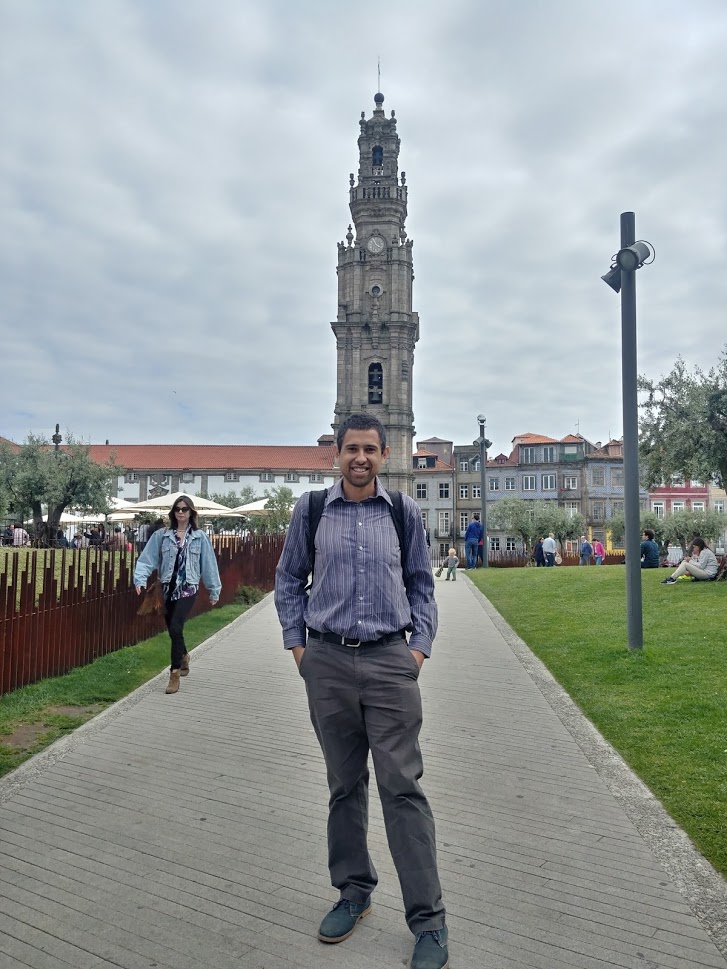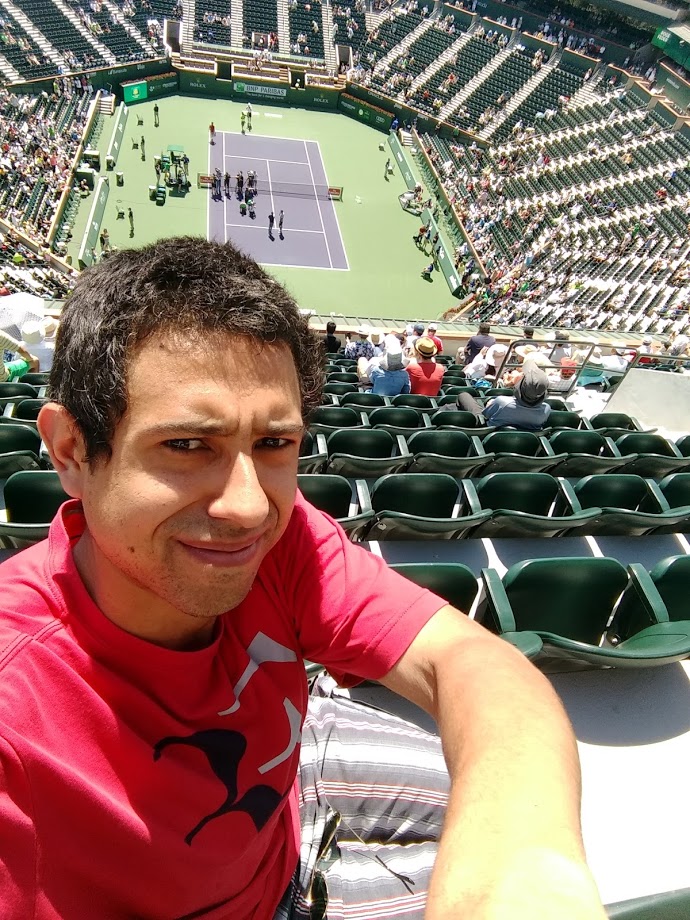News | Dr. Felipe De Souza of Argonne National Laboratory Presents on Connected and Autonomous Vehicles at ISERT 2020
Stop the VideoNews

Dr. Felipe De Souza of Argonne National Laboratory Presents on Connected and Autonomous Vehicles at ISERT 2020
Thursday, August 13, 2020
by Adylbek Abdykalikov, USC, IPPAM 2020
From January 17 through 18, 2020, the University of California, Irvine (UCI) and sponsor Pacific Southwest Region University Transportation Center (PSR) hosted the Third Annual Irvine Symposium on Emerging Research in Transportation (ISERT 2020). Each year, this Symposium brings together academics, researchers, graduate students, and industry professionals in transportation to exchange ideas on emerging research and applications in transportation. ISERT spotlights new research ideas that may still be under development or that involve preliminary results. This is the fifth in a series of articles detailing the Symposium itself as well as individual presenters.
UCI Alumnus Dr. Felipe De Souza presented his research, "Exploring the Mobility and Energy Implications of Shared Versus Private Autonomous Vehicles," at ISERT 2020. De Souza’s research analyzes the overall impacts of Connected and Autonomous Vehicles (CAVs) on transportation networks, with particular attention to energy impacts.
De Souza is a Postdoctoral Appointee at Argonne National Laboratory, operated by the University of Chicago and the largest national laboratory in the Midwest. Originally from Brazil, De Souza earned a BS in Control and Automation Engineering and an MS in Systems Engineering, both from the Federal University of Santa Catarina. He completed his PhD at UCI in 2018 in Transportation Systems Engineering, with advisor Professor Wenlong Jin.

Felipe De Souza.
De Souza's research interests relate to traffic flow theory and control and Mobility as a Service (MaaS) fleet optimization. MaaS is described as the integration of transportation modes and systems, with a higher prioritization of shared modes, to provide a seamless travel experience for any individual, from accessing payment methods to planning a trip. At ISERT, De Souza presented the MaaS- and CAV-centered research that he and his team at Argonne National Laboratory have been conducting for the past three years. "CAVs can change the landscape in different ways," he noted. On the one hand, CAVs can lead to less traffic and greater road capacity, ultimately reducing congestion. On the other hand, people can travel more often and for longer distances if CAVs are available, since people who were not previously able to drive can now ride in a car independently; people can accomplish other activities in a car instead of focusing on driving.
"Our approach was to attempt to capture all these aspects in a single framework. We also analyzed the scenarios in which people privately own the AVs and another in which people would rely on MaaS [platforms] like Uber for their daily trips," De Souza explained. The key finding of his research is that this latter scenario, with an emphasis on MaaS or shared trips, would reduce overall congestion compared to what congestion has averaged in the Chicago area. "With privately-owned CAVs, congestion can be worsened due to a higher amount of empty trips of CAVs repositioning to serve another household member," he warned. This shared scenario leads to lower energy consumption, which is a key concern of the Department of Energy, which sponsored the project under the SMART Consortium.
De Souza has been contributing to transportation research since he began his studies at UCI in 2014. In 2017, he was awarded an ITS-California scholarship for continued research in Intelligent Transportation Systems (ITS). His outstanding academic achievements were also recognized by the UC Miguel Velez Scholarship, an award given to Latin American graduate students who exhibit excellence in character and ability. Another valuable achievement is his Best Paper Award for his work at the IEEE International Conference on Automation Science and Engineering.

In his spare time, De Souza enjoys watching sports games and matches.
De Souza shared that he was glad to attend and present at ISERT 2020 – "[It] was great to meet my UCI colleagues and see their recent research findings."
We congratulate Dr. Felipe De Souza on his many accomplishments, and we look forward to seeing his CAV energy research advance the concepts of CAVs and MaaS.
About the Author:
Adylbek Abdykalikov is a recent graduate of the Masters of International Public Policy and Management Program at USC Price. He has working experience in various positions at the Ministries of Transport and Communication and Investment and Development of Kazakhstan and was in charge of Transportation and Civil Aviation policy development and implementation. He served as the lead writer to METRANS Newsletter and lead student event coordinator for METRANS and PSR.
News Archive
- December (1)
- November (6)
- October (4)
- September (2)
- August (3)
- July (4)
- June (3)
- May (7)
- April (8)
- March (11)
- February (8)
- January (7)
- December (7)
- November (8)
- October (11)
- September (11)
- August (4)
- July (10)
- June (9)
- May (2)
- April (12)
- March (8)
- February (7)
- January (11)
- December (11)
- November (5)
- October (16)
- September (7)
- August (5)
- July (13)
- June (5)
- May (5)
- April (7)
- March (5)
- February (3)
- January (4)
- December (4)
- November (5)
- October (5)
- September (4)
- August (4)
- July (6)
- June (8)
- May (4)
- April (6)
- March (6)
- February (7)
- January (7)
- December (8)
- November (8)
- October (8)
- September (15)
- August (5)
- July (6)
- June (7)
- May (5)
- April (8)
- March (7)
- February (10)
- January (12)















